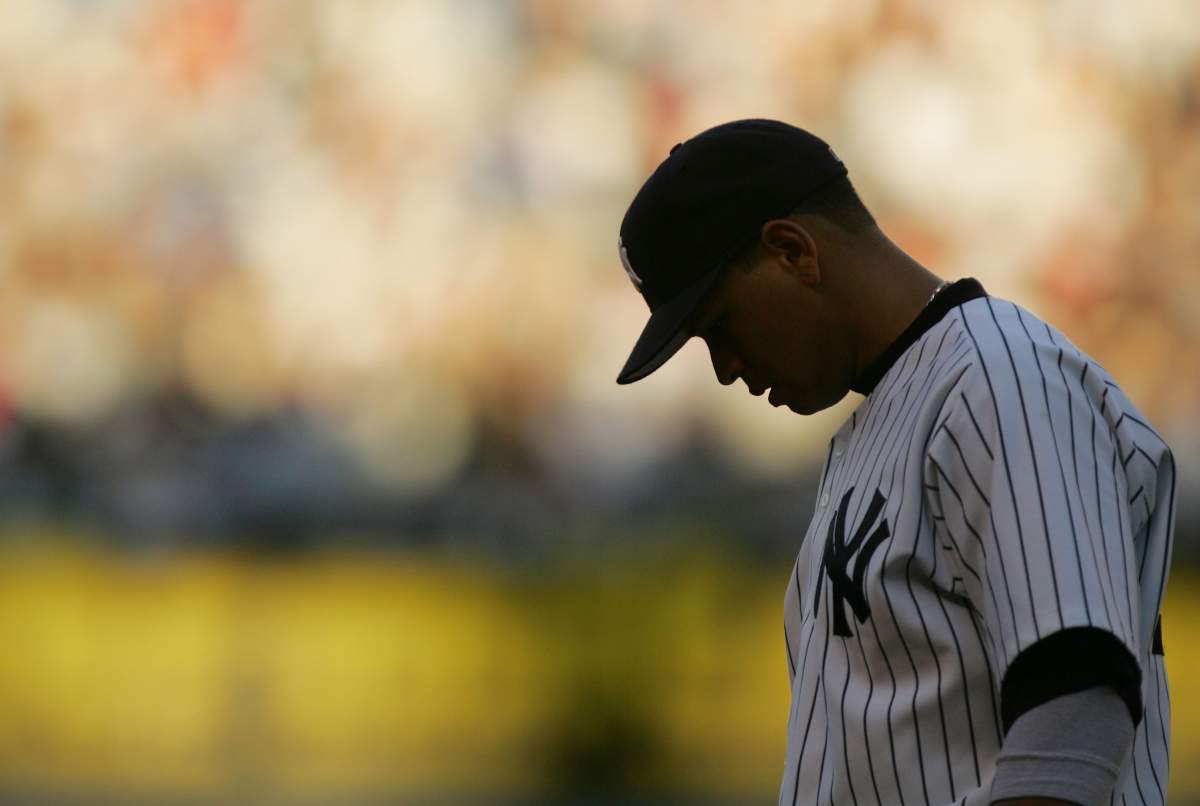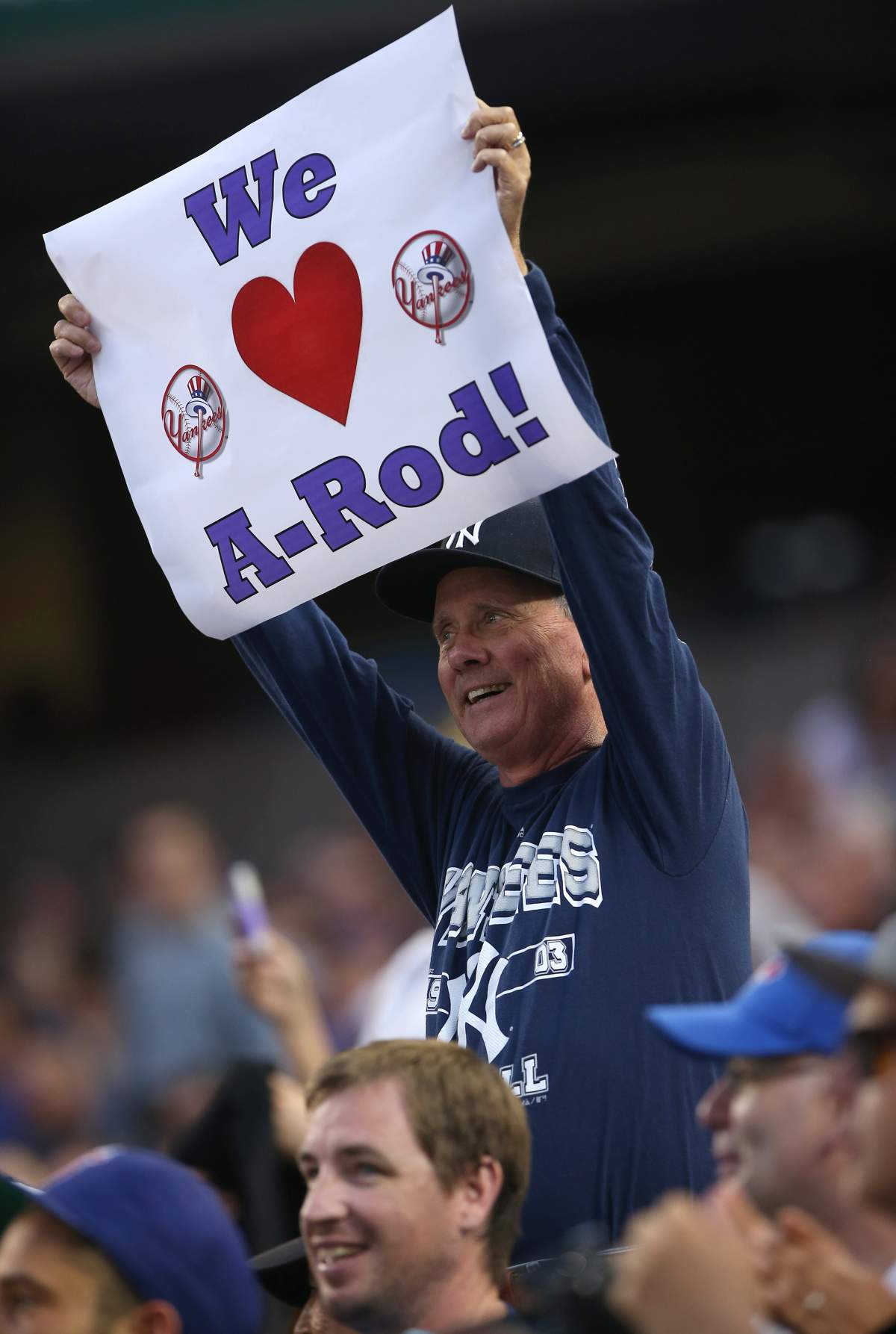NEW YORK – Alex Rodriguez’s drug suspension was cut to 162 games from 211 by arbitrator Fredric Horowitz, a decision the New York Yankees third baseman vowed to fight in federal court.

Rodriguez also would be sidelined for any post-season games this year under the ruling announced Saturday, which costs him $25 million of the $86 million remaining on his contract.
“The number of games sadly comes as no surprise, as the deck has been stacked against me from day one,” Rodriguez said in a statement. “This is one man’s decision, that was not put before a fair and impartial jury, does not involve me having failed a single drug test, is at odds with the facts and is inconsistent with the terms of the Joint Drug Agreement and the Basic Agreement, and relies on testimony and documents that would never have been allowed in any court in the United States because they are false and wholly unreliable.”
The Major League Baseball Players Association filed a grievance saying the discipline was without “just cause”.
Horowitz, who became the sport’s independent arbitrator in 2012, heard the case over 12 sessions from Sept. 30 until Nov. 20. Technically, he chaired a three-man arbitration panel that included MLB Chief Operating Officer Rob Manfred and union General Counsel Dave Prouty.
Despite the ban, baseball’s drug rules allow Rodriguez to participate in spring training and play in exhibition games.
While the 38-year-old Rodriguez could fight the ruling in court, judges rarely overturn arbitrators’ decisions.

Get daily National news
“While we believe the original 211-game suspension was appropriate, we respect the decision rendered by the panel and will focus on our continuing efforts on eliminating performance-enhancing substances from our game,” MLB said in a statement.
The union said in its own statement that it “strongly disagrees” with the ruling but added “we recognize that a final and binding decision has been reached.
“We respect the collectively-bargained arbitration process which led to the decision,” the union said added.
Rodriguez, however, plans to continue the fight.
“This injustice is MLB’s first step toward abolishing guaranteed contracts in the 2016 bargaining round, instituting lifetime bans for single violations of drug policy, and further insulating its corrupt investigative program from any variety defence by accused players, or any variety of objective review,” he said.
“I have been clear that I did not use performance-enhancing substances as alleged in the notice of discipline, or violate the Basic Agreement or the Joint Drug Agreement in any manner, and in order to prove it I will take this fight to federal court. I am confident that when a federal judge reviews the entirety of the record, the hearsay testimony of a criminal whose own records demonstrate that he dealt drugs to minors, and the lack of credible evidence put forth by MLB, that the judge will find that the panel blatantly disregarded the law and facts, and will overturn the suspension.”
Rodriguez has claimed Selig was on a vendetta to smear him as a way of burnishing the commissioner’s image following the Steroids Era. Both sides have admitted paying for evidence as they prepared for the hearing.
The three-time AL MVP was given the 211-game penalty by Commissioner Bud Selig on Aug. 5 following Major League Baseball’s investigation of the Biogenesis of America anti-aging clinic, which was accused of distributing banned performance-enhancing drugs.

Fourteen players were penalized following the Biogenesis probe, and they all accepted penalties. Milwaukee outfielder Ryan Braun sat out the final 65 games of the season, the other players were given 50-game suspensions.
A-Rod’s drug penalty was for “his use and possession of numerous forms of prohibited performance-enhancing substances, including testosterone and human growth hormone over the course of multiple years,” MLB said last summer. His punishment under the labour contract was “for attempting to cover up his violations of the program by engaging in a course of conduct intended to obstruct and frustrate the office of the commissioner’s investigation.”
Rodriguez admitted in 2009 that he used PEDs while with Texas from 2001-03 but has repeatedly denied using them since.
His penalty was more than double the previous high for a PED suspension, a 100-game ban given last year to San Francisco pitcher Guillermo Mota for a second offence. Kansas City infielder Miguel Tejada was given a 105-game ban last summer following a third positive test for amphetamines.
Rodriguez is still signed by the Yankees through 2017 at salaries of $21 million in 2015 and $20 million in each of the final two seasons, part of his record $275 million, 10-year contract with the Yankees.








Comments